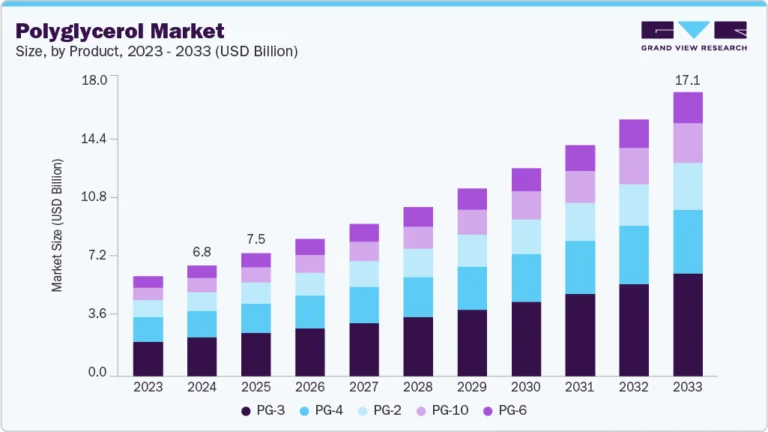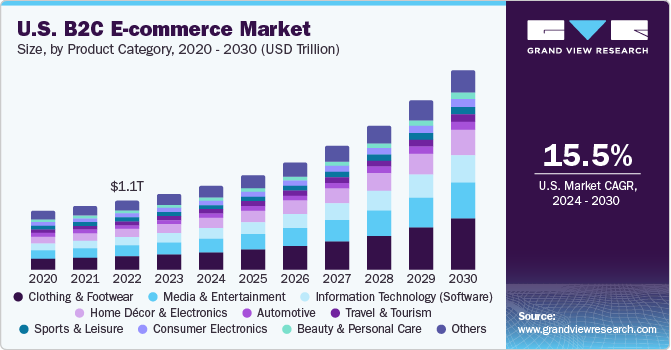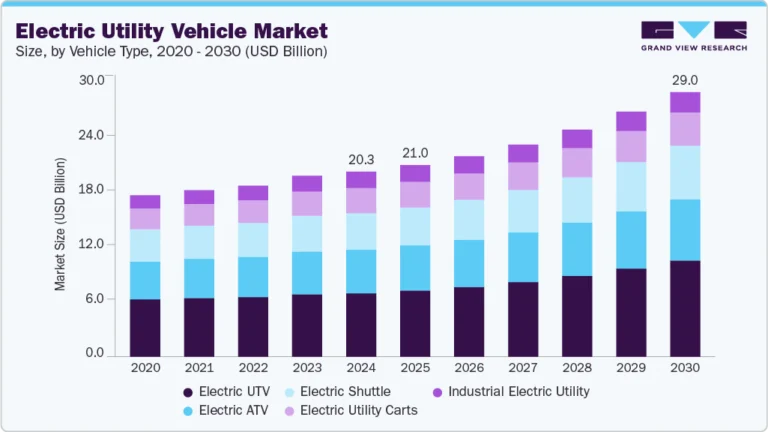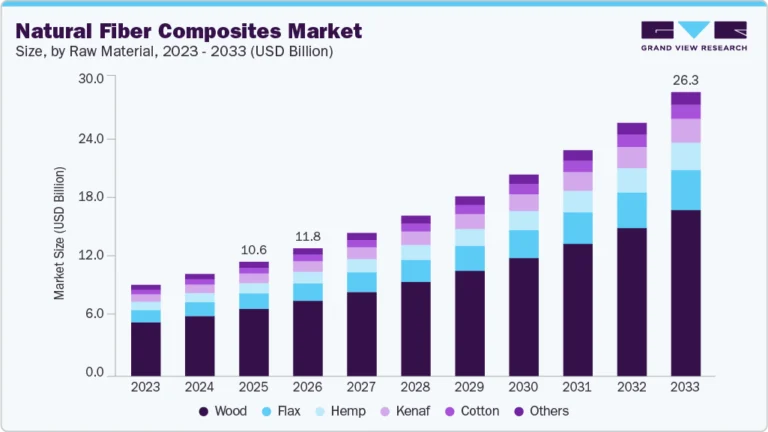Reverse Logistics Market Size, Share & Trends Analysis growing at a CAGR of 17.4% from 2025 to 2033
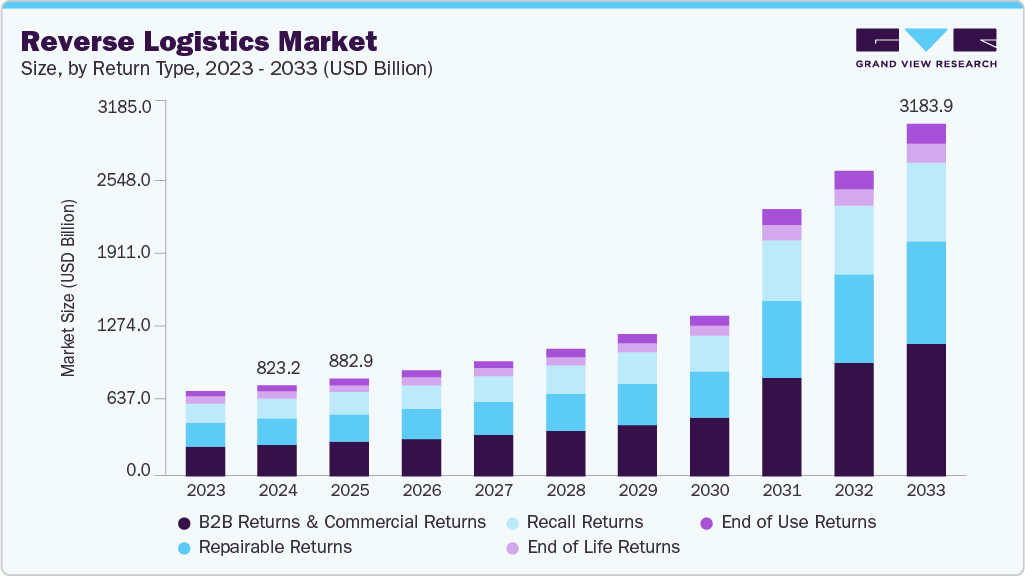
The global reverse logistics market size was estimated at USD 823.21 billion in 2024 and is projected to reach USD 3,183.94 billion by 2033, growing at a CAGR of 17.4% from 2025 to 2033. The global expansion of e-commerce businesses and the increasing frequency of returns and replacements of products have propelled the demand for reverse logistics services.
Key Market Trends & Insights
- The North America reverse logistics market held a significant revenue share in 2024.
- The reverse logistics industry in the U.S. held a dominant position in 2024.
- By return type, the B2B returns and commercial returns segment accounted for the largest share of 35.1% in 2024.
- By services, the transportation segment held the largest market share in 2024.
- By end user industry, the retail & e-commerce segment dominated the market in 2024.
Market Size & Forecast
- 2024 Market Size: USD 823.21 Billion
- 2033 Projected Market Size: USD 3,183.94 Billion
- CAGR (2025-2033): 17.4%
- North America: Largest market in 2024
Request a free sample copy or view report summary: https://www.grandviewresearch.com/industry-analysis/reverse-logistics-market-report/request/rs1
Increasing product recalls due to strict government rules and product quality standards is expected to boost market growth. The e-commerce service providers emphasize reverse logistics as certain customers prefer to initially analyze the ordered products physically and then decide whether to keep them. If the product is not worth buying, customers can return it with the help of reverse logistics. For instance, buyers can only test clothing after making a purchase decision, especially for online shopping.
The increasing use of advanced technologies such as Automation, Robotics, and Augmented Reality has enabled e-commerce companies to excel in efficiency and reachability. An increasing number of consumers prefer online purchasing over in-store purchasing owing to benefits such as convenience, lead time, cost, and variety of choices. E-commerce businesses significantly depend on shipping and warehousing capabilities to transfer products from retailers or manufacturing units to end-users in a shorter lead time.
Automation can route customer return requests, create packaging and labeling materials, reduce wait times for returning items to physical stores, and offer customers the option to return orders by mail, among others. Companies can use robotic process automation to contact consumers once the return request is initiated or to complete the return process and audit all operations efficiently. Automation can provide transparency in the return process to ensure that customers remain updated on the process once they raise a request for a return, exchange, or submit a warranty claim. Moreover, it helps in preventing fraud in the returns process.
Reverse Logistics Market Report Scope
|
Report Attribute |
Details |
|
Market size value in 2025 |
USD 882.94 billion |
|
Revenue forecast in 2033 |
USD 3,183.94 billion |
|
Growth rate |
CAGR of 17.4% from 2025 to 2033 |
|
Base year for estimation |
2024 |
|
Historical data |
2021 – 2023 |
|
Forecast period |
2025 – 2033 |
|
Quantitative units |
Revenue in USD billion and CAGR from 2025 to 2033 |
|
Report service |
Revenue forecast, company ranking, competitive landscape, growth factors, and trends |
|
Segments covered |
Return type, service, end user industry, and region |
|
Regional scope |
North America; Europe; Asia Pacific; Latin America; MEA |
|
Country scope |
U.S.; Canada; Mexico; Germany; UK; France; China; Japan; India; South Korea; Australia; Brazil; Argentina; GCC; and South Africa |
|
Key companies profiled |
DB SCHENKER (Deutsche Bahn AG); Deutsche Post AG; FedEx Corporation; Kintetsu World Express, Inc.; United Parcel Service, Inc.; Yusen Logistics Co., Ltd.; RLG Systems AG; Core Logistic Private Limited; Safexpress Pvt. Ltd.; C.H. Robinson Worldwide, Inc. |
|
Customization scope |
Free report customization (equivalent up to 8 analysts working days) with purchase. Addition or alteration to country, regional & segment scope. |
|
Pricing and purchase options |
Avail customized purchase options to meet your exact research needs. Explore purchase options |

